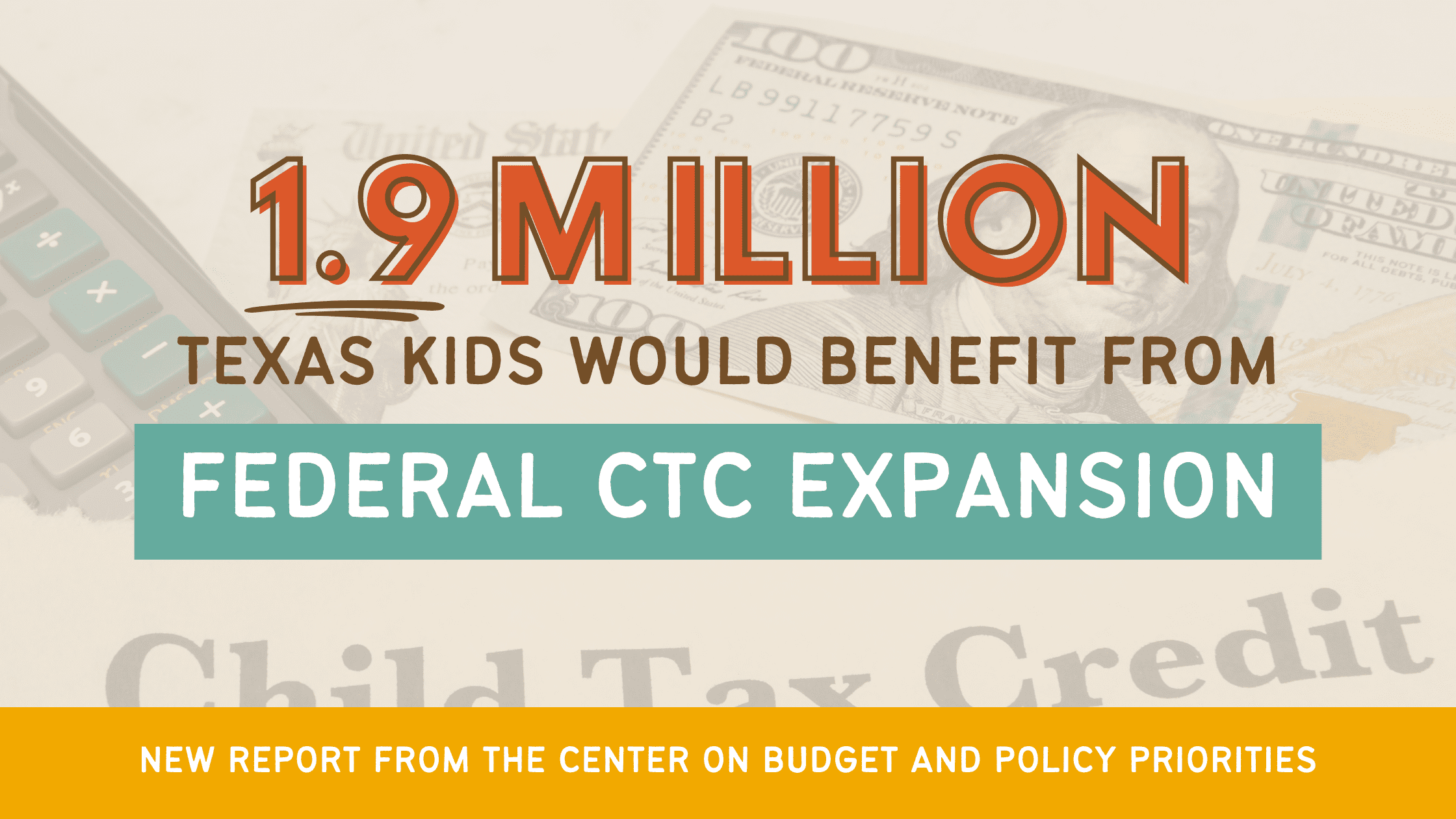As a proposal to raise the Child Tax Credit advances in Congress, a new report from the Center on Budget and Policy Priorities highlights the good it could do for low-income families.
Every child deserves to be healthy, safe, and well-fed, and at Every Texan we fight constantly to improve federal and state support for low-income families. The federal child tax credit (CTC) is a crucial tool that has helped millions of families struggling with poverty. But about 19 million children nationwide don’t receive the full $2,000 credit because their household incomes are too low.
Last week, a bipartisan group of federal lawmakers tentatively agreed on a proposal that would expand the CTC for three years, setting the stage to correct that paradox and increase the tax credit for millions of low-income families. On January 19, a bill including a CTC expansion alongside a few pro-business compromise measures passed the House Ways & Means Committee with a 40-3 vote. It could move to a House floor vote by the end of January.
If the proposal becomes law, a new report from the Center on Budget and Policy Priorities estimates that nearly 16 million more U.S. children will be eligible for the CTC, and half a million children will rise above the poverty line by 2025. Texas families would see the second-largest impact nationally, with more than 1.9 million kids expected to benefit from the proposed CTC expansion. Nearly 70% of the 1.9 million Texas children are Hispanic, 13% are Black, and 13% are white. According to our Texas Kids Count report and the American Community Survey, Texas ranked 10th worst in the nation in child poverty in 2021, with 1.4 million – nearly 1 in 5 – disproportionately Black and Hispanic kids living below the poverty line.
During the pandemic, a temporary expansion of the CTC was largely responsible for keeping 3 to 4 million U.S. children out of poverty and slashed the national child poverty rate to 5.2% in 2021, according to the Supplemental Poverty Measure (which incorporates poverty-reduction transfer payments such as the CTC). When that expired, child poverty rapidly spiked to 12.4% at the end of 2021. That drastic change reinforced existing evidence that direct cash assistance programs, like the CTC, are simple and effective ways to help struggling families by providing greater economic and food security. There is no evidence to suggest that such payments discourage people from working, despite claims from opponents .
While the new bill doesn’t do everything it should, it’s a great step in the right direction. Ultimately, a fully refundable monthly credit, like the one that expired in 2021, would do the most good for these families. CBPP notes that although the current proposal is modest, it is well-targeted to benefit families who don’t currently receive the full credit.
We’re encouraged by the progress of this proposal and its bipartisan support, but it’s a long way from the finish line. A number of disagreements and procedural hurdles still remain among legislators, and even if the bill passes the House, its future in the Senate is uncertain. Congress must pass this well-crafted proposal to offer relief to our most vulnerable children.
